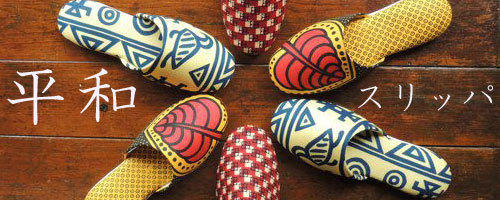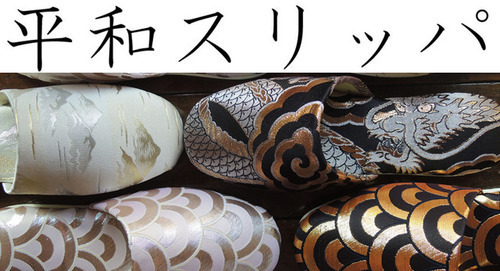
Review | Denim Mix Slippers 2021AW-L803





Wondering how our slippers feel in daily life? Read real feedback and experiences from Heiwa Slipper customers.
🌱 More reviews on the SHOP app
The SHOP app (by Shopify) makes it easy to track your orders and discover brands you’ll love.
📲 Download SHOP — Shopping and tracking, all in one place.
📝 Review Blogs
See in-depth stories, photos, and customer experiences on our blog.



L’empreinte carbone de chaque livraison est calculée en fonction du poids, de la mode d’expédition et de la distance parcourue. Nous neutralisons ces émissions en achetant des crédits de captage du carbone vérifiés provenant de projets novateurs.



Avec votre achat, vous rejoindrez une communauté de marchands et de clients proactifs qui se consacrent à un avenir durable. Ensemble, nous avons supprimé les émissions de plus de 71 millions de livraisons et éliminé plus de 50 milliers de tonnes de carbone.

Nous travaillons avec un réseau d’entreprises pionnières en matière de captage du carbone qui ont été approuvées par la plateforme de commerce Shopify.


Pourquoi nous aimons l’up-cycling upcycling / zéro déchet / fait main Une façon douce de faire durer les choses Chez Heiwa Slipper, nous utilisons parfois des tissus réemployés — petites...
Pourquoi nous aimons l’up-cycling upcycling / zéro déchet / fait main Une façon douce de faire durer les choses Chez Heiwa Slipper, nous utilisons parfois des tissus réemployés — petites...

🇯🇵 L’histoire du denim japonais – entre tradition et savoir-faire Le denim japonais n’est pas qu’un simple tissu — c’est le reflet d’un artisanat patient, d’une culture textile et d’un...
🇯🇵 L’histoire du denim japonais – entre tradition et savoir-faire Le denim japonais n’est pas qu’un simple tissu — c’est le reflet d’un artisanat patient, d’une culture textile et d’un...

What Is Tatami? The Natural Comfort and Quiet Beauty of Japan’s Traditional Floor Tatami has been part of Japanese life for more than a thousand years. Made from natural igusa...
What Is Tatami? The Natural Comfort and Quiet Beauty of Japan’s Traditional Floor Tatami has been part of Japanese life for more than a thousand years. Made from natural igusa...
Thank you for visiting our website. We are an online slipper store located in Japan and very excited to introduce you our various collections of the slippers.
But first, let me explain what we call “slipper” in Japan. Most of the time, in Western countries, “slipper” means “a semi-closed type of shoe, consisting of a sole held to the wearer’s foot by a strap running over (or between) the toes or instep (Reference: Wikipedia)”. They are wearable shoes for outside, most of the time, and sometimes inside as well for comfort. On the other hand, in Japan, when we say “slipper”, we think flat, in-house footwear item, and that is the kind we would like to spread to the world.
As you may know, it is our common practice to take our shoes off when we go in the house to keep the floor clean. Then why do we wear slippers in the house? How did the slipper become so common in Japan?

It is said that the origin of slipper firstly appeared in Japan in the beginning of Meiji era (1968-1912), which was the time Japan was opening its country to the world and having more people visited from outside, especially from Western countries. However, those visitors of course walked straight into the houses or hotel rooms without taking their shoes off. Japanese people worried that the floor would eventually get dirty and the tatami would be damaged. Slipper was devised to deal with those problems and to welcome people who came from different cultural background.

Ever since then, slipper has become common/daily use item all over Japan. However, unfortunately, we barely find slippers made in Japan these days. A lot of them are industrially mass-produced in other countries at lower wages, and sold at a cheap price here. Our theme is “Return of Japanese Slippers”.
Here, we will introduce slippers made with the spirits of Japanese hospitality. We would like to also introduce some slippers made in other countries, in which we try our best to achieve the fair-trade upon importing them. “Benefits for all three sides, for the customer, society, and the vendor” is what we are aiming for.
We believe slipper can be a bridge to the peace (= “Heiwa”).
- Heiwa Slipper
![]()

